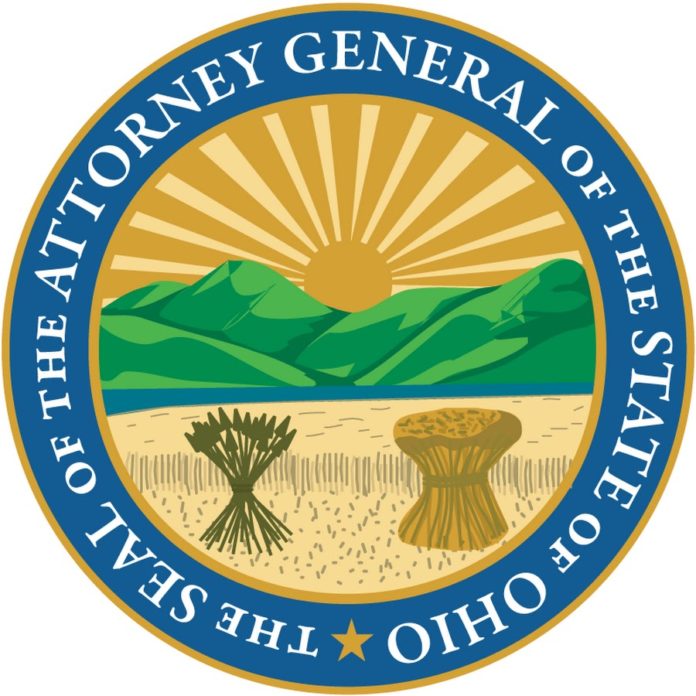(COLUMBUS, Ohio) — Ohio Attorney General Dave Yost today announced a historic $26 billion nationwide agreement with the three largest distributors of opioids and Johnson & Johnson for their roles in the far-reaching and devastating opioid epidemic.
In addition to the monetary settlement, distributors Cardinal, McKesson and AmerisourceBergen and Johnson & Johnson, which manufactured and marketed opioids, must also make significant changes to help prevent a similar crisis from ever happening again.
“This isn’t an antidote for this devastating crisis that killed so many, but the financial resources will provide for significant recovery in Ohio,” Yost said. “The funds are necessary for the healing process that our communities desperately need, and the guardrails these companies are now required to implement will help make sure that these companies will provide a brake in the system, so that those individuals who need medication can receive it without flooding our communities.”
The settlement stems from investigations by Yost and other state attorneys general into whether the three distributors fulfilled their legal duty to refuse to ship opioids to pharmacies that submitted suspicious drug orders and whether Johnson & Johnson misled patients and doctors about the addictive nature of opioid drugs.
The agreement resolves the investigations and litigation related to the companies’ roles in the epidemic. State negotiations were led by Attorneys General Yost, Josh Stein of North Carolina and Herbert Slatery of Tennessee as well as the attorneys general of California, Colorado, Connecticut, Delaware, Florida, Georgia, Louisiana, Massachusetts, New York, Pennsylvania and Texas.
The Buckeye State has been a steadfast leader in the opioid fight, one of the first states to file suit against the distributors and the second state to sue the manufacturers in an effort to gain accountability and compensation for the harm they collectively caused.
Tragically, opioid overdose deaths nationwide rose last year to a record 93,000, nearly a 30 percent increase over the previous year. During the second quarter of 2020 in Ohio, 11 of every 100,000 people died of an opioid overdose, the state’s highest mortality rate at any point during the epidemic.
From 2010 to 2019, opioid overdoses claimed more than 23,700 Ohioans, with countless more having had their lives and/or communities torn apart by the epidemic fueled by these companies.
The agreement resolves the claims of both states and local governments throughout the country, including the nearly 4,000 that have filed lawsuits in state and federal courts. Following today’s agreement, states have 30 days to sign on to the deal and local governments in the states that participate will have up to 150 days to join. Maximum payments will be made to states and their local governments if they collectively support the agreement, securing a critical mass of participating states and local governments.
Overview of the settlement funding
- The three distributors collectively will pay up to $21 billion over 17 years.
- Johnson & Johnson will pay up to $5 billion over nine years with up to $3.7 billion paid during the first three years.
- The total funding distributed will be determined by the overall participation of both litigating and non-litigating state and local governments.
- The substantial portion of the money must be spent on opioid treatment and prevention.
- Each state’s share of the funding has been determined by agreement among the states using a formula that takes into account the impact of the crisis on the state – the number of overdose deaths, the number of residents with substance use disorder, and the number of opioids prescribed – and the population of the state.
Overview of the injunctive relief
The 10-year agreement will result in court orders requiring Cardinal, McKesson, and AmerisourceBergen to:
- Establish a centralized independent clearinghouse to provide all three distributors and state regulators with aggregated data and analytics about where drugs are going and how often, eliminating blind spots in the current systems used by distributors.
- Use data-driven systems to detect suspicious opioid orders from customer pharmacies.
- Terminate customer pharmacies’ ability to receive shipments, and report those companies to state regulators when they show certain signs of diversion.
- Prohibit shipping of suspicious opioid orders and report such suspicious orders.
- Prohibit sales staff from influencing decisions related to identifying suspicious opioid orders.
The 10-year agreement will result in court orders requiring Johnson & Johnson to:
- Stop selling opioids.
- Not fund or provide grants to third parties for promoting opioids.
- Not lobby on activities related to opioids.
- Share clinical trial data under the Yale University Open Data Access Project.
Require senior corporate officials to engage in regular oversight of anti-diversion efforts.























